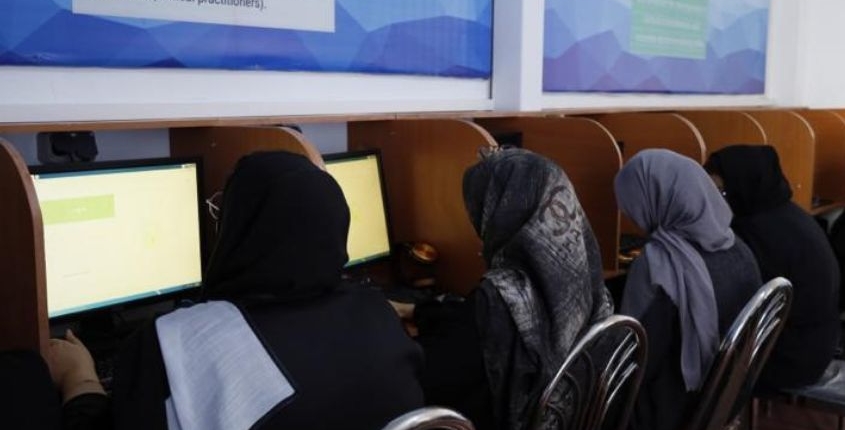The CyberPatient Centre for Medical Education
and Research officially opens its doors
The CyberPatient Centre for Education and Research officially opened its doors on September 1, 2022. It was a momentous occasion for three organizations, hundreds of medical students, faculty members, and thousands of future patients. Despite ongoing political and economic challenges, Ghalib University in Herat, Afghanistan’s historic city welcomed the opening of the centre focused on supporting medical education.
The CyberPatient Centre – An Educational Hub for Education and Research
Doors officially opened to the unique educational hub, the CyberPatient Centre for Education and Research, on this noteworthy occasion. The Centre houses 15 modern computers and a high-speed internet connection to support the students and faculty using the CyberPatient virtual hospital. Students and faculty have access to the which will be used to support leaders in their competency-based education programs. This opportunity makes CyberPatient an integral part of the university’s medical school program. Thanks to the fruitful partnership between CanHealth International, Interactive Health International (IHI) and Ghalib University, this center was made a reality. Until this successful collaboration, the university did not have the electronic capabilities to access the CyberPatient platform that was already made freely available to them.
Dignitaries, University Officials, Faculty and Staff Attend Opening Ceremony
A momentous ceremony at Ghalib University welcomed members of the Ministries of Health and Education, other generous donors, university officials, students and faculty who officially opened the CyberPatient Centre. The President and Dean expressed their gratitude on behalf of Ghalib University and cordially thanked Dr. Qayumi and CanHealth International for providing this exciting opportunity. Furthermore, in his speech, Dr. Qayumi outlined the importance of CyberPatient in completing practical medical education. He also expressed his profound interest in the role of Interactive Health International (CyberPatient) in supporting medical education in all developing nations, including Afghanistan. Additionally, he acknowledged the important role of CanHealth International for continuously supporting Ghalib University, providing free access to CyberPatient and pledging to further fundraise for improvements in accessibility through establishing larger centers where more students will be able to learn.

Who is CanHealth International?
CanHealth International, a Canadian non-profit organization, was founded in 2013 with a clear goal of bringing a high standard of healthcare education free of charge to developing nations across the globe. By providing access to high-standard educational materials, resources and services to support and strengthen existing interprofessional health education, CanHealth aims to create a global community that fosters a measurable improvement of human health in lower-income countries.
‘WHO estimates a projected shortfall of 15 million health workers by 2030, mostly in low- and lower-middle-income countries.’ CanHealth’s educational services were developed in response to the world’s health sector crisis. People across the globe, particularly in developing countries, lack access to quality health services, largely due to a huge shortage, an imbalanced skill mix, and uneven geographical distribution of health workers. CanHealth International pledges to raise funds to support infrastructure and accessibility to address these issues.







